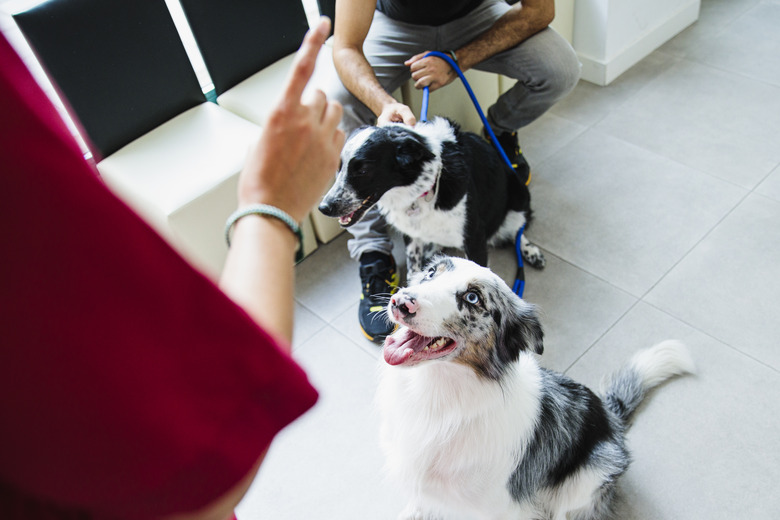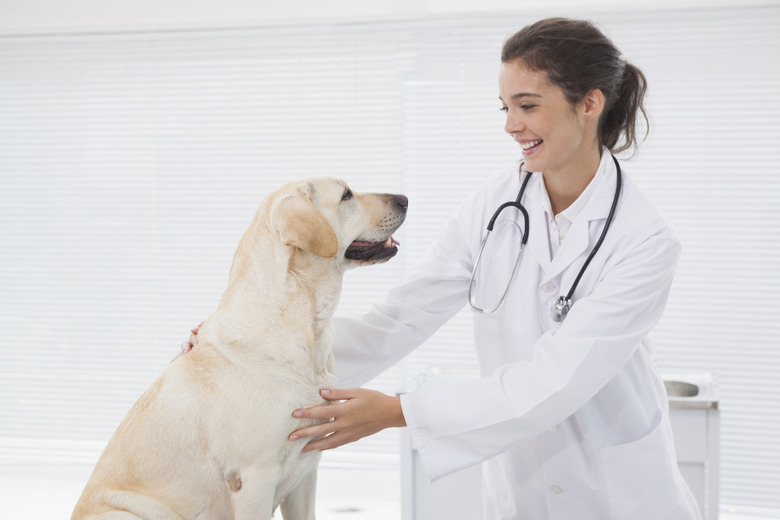Signs Of Abdominal Cramping In Dogs
Abdominal cramping in dogs can be caused by a number of health problems, and there are many symptoms that can alert you to the fact that your pet is in pain. It's crucial that you seek veterinary care for your dog, especially if you don't know the cause of their abdominal discomfort. Although cramps might be due to an upset tummy, some conditions are serious and can be fatal.
What is abdominal pain in dogs?
What is abdominal pain in dogs?
Abdominal pain is discomfort felt in the stomach area. Your dog may be visibly uncomfortable and might even try to stop you from touching their belly. The pain might be coming from your pet's stomach, intestines, or other organs in the abdomen. Therefore, causes and symptoms are varied, and it's necessary to get to the root of the problem to resolve it.
Signs of abdominal pain in dogs
Signs of abdominal pain in dogs
Various symptoms may indicate that your dog is suffering from abdominal cramps. They include:
- Stomach distension and swelling
- Vocalizations like whimpering, crying, or grunting
- Gagging or retching
- Vomiting
- Restlessness or inability to find a comfortable position
- Diarrhea
- Constipation
- Gurgling stomach sounds
- Loss of appetite
These serious symptoms and complications are a veterinary emergency and require immediate attention:
- Difficulty breathing
- Pale gums
- Rapid heart rate
- Coma
Abdominal cramping can be caused by life-threatening conditions. If your dog is experiencing any of the symptoms of abdominal pain, it's important to take them to the veterinarian for proper diagnosis and treatment.
Causes of abdominal cramping in dogs
Causes of abdominal cramping in dogs
Several conditions can lead to canine abdominal pain and cramping. Possible causes include:
- Gastrointestinal disorders
- Gastroenteritis
- Poisoning
- Urinary stones that are obstructing the bladder
- Ruptured bladder
- Abdominal trauma
- Internal injury
- Peritonitis
- Acute pancreatitis
- Intestinal blockage
- Foreign body
- Ruptured uterus during pregnancy
- Parvovirus
- Stomach ulcers
Dog bloat is another possible culprit. It occurs when gas builds up in the stomach and causes it to expand. This can lead to gastric dilatation-volvulus (GDV), which causes the stomach to become twisted. This is a medical emergency that requires immediate care. Any dog could develop bloat, especially if they gulp down food. However, large breeds with a deep chest, such as German shepherds, Irish setters, Doberman pinschers, and great Danes, may be more prone to it.
What to do if your dog's stomach is painful
What to do if your dog's stomach is painful
If your dog is experiencing stomach pain or cramps, try to find the cause, as this information can be useful to your veterinarian. Check your houseplants, trash bags, floor, etc. for any evidence that your dog ate something they shouldn't have eaten.
It is essential that you get your sick dog to the veterinarian as soon as you notice their symptoms. Time may be crucial in the event that your dog is suffering from poisoning or a problem like bloat. Bear in mind that some conditions can be fatal within hours of the onset of symptoms.
How to treat a dog's upset stomach
How to treat a dog's upset stomach
Your veterinarian will ask you questions to learn about your pet's condition and will perform a physical examination. This may include palpating your dog's stomach, listening to their heart and lungs, taking their temperature, and checking for other signs of pain and illness. The veterinarian may also run tests, such as blood tests, and they may use radiographs (X-rays) to check the stomach or other organs.
Once your veterinarian has determined the underlying cause of the abdominal cramping and other symptoms, they'll prescribe appropriate treatments. Surgical intervention might be necessary.
How to prevent abdominal pain in dogs
How to prevent abdominal pain in dogs
To help prevent abdominal cramping in dogs, you can take steps like the following:
- Stop your dog from eating things they shouldn't: Keep your dog away from toxic foods, plants, and other items that can lead to obstructions and an upset stomach. Make sure all of their toys are safe and in good condition and place dangerous items out of reach. Always supervise your dog when they have a toy, food, or bone.
- Take your dog to the veterinarian regularly: To see if your pet is doing well and to address dog health concerns in their earliest stages, have them examined by a veterinarian on a regular basis.
- Follow your veterinarian's dog food recommendations: Your veterinarian might recommend changes to your dog's diet, meal schedule, or portions to support healthy digestion. If your dog has an upset stomach, they might advise temporarily giving your pet a bland diet or probiotics. Also, give your canine access to plenty of fresh, clean water throughout the day and night. While hydration won't stop abdominal cramps, replenishing fluids is necessary for a dog who is losing them through vomiting or diarrhea.
The bottom line
The bottom line
If your dog is showing signs of abdominal discomfort, don't assume that it's just a minor stomachache. Because there's a range of conditions that can cause this pain, including problems that may be life-threatening, dog owners should consult with a DVM to ensure you can give your pet the help they need to feel better.


